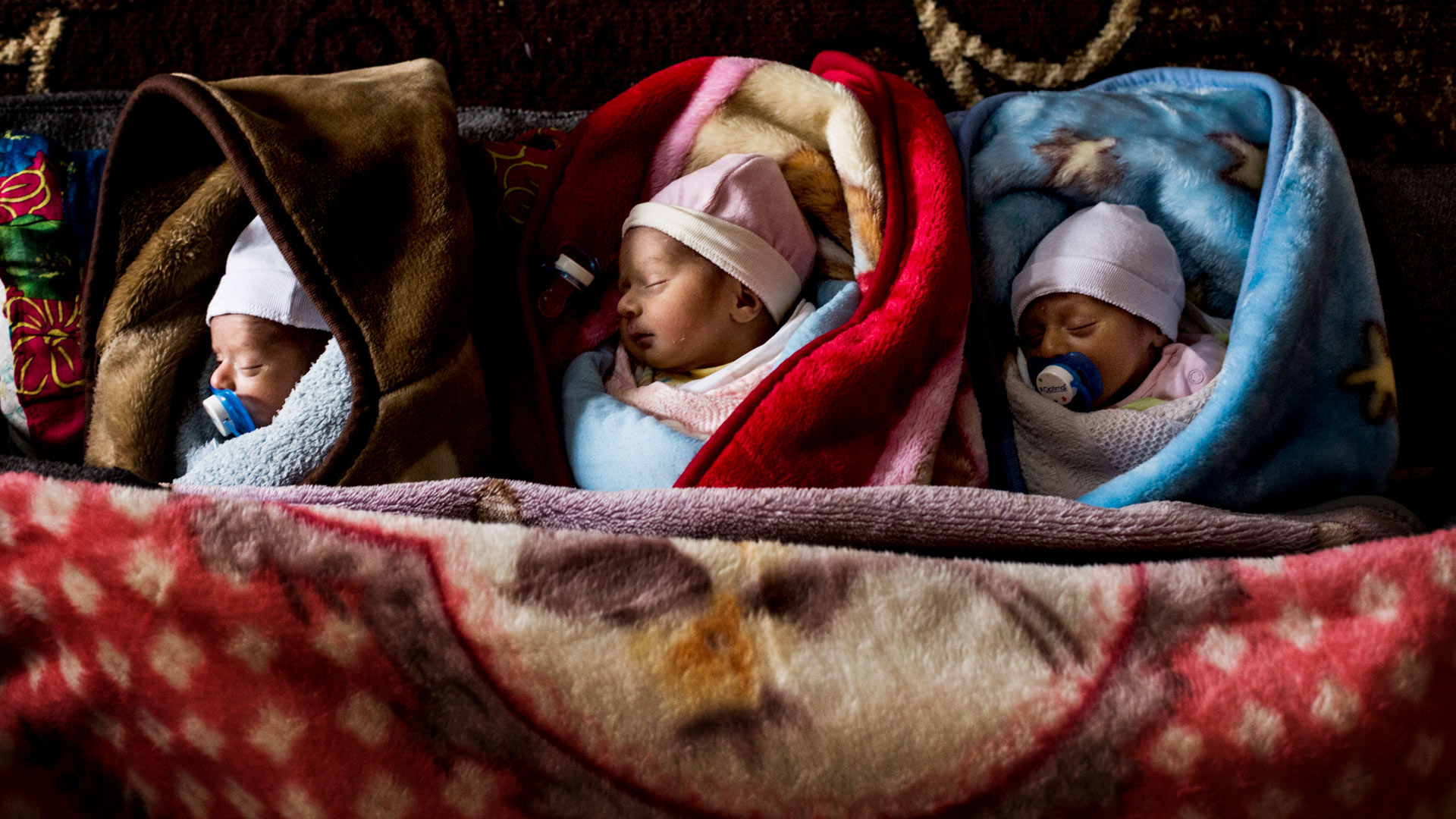Syrian aid groups seek UNHCR help in providing for Lebanese
Syrian aid groups seek UNHCR help in providing for Lebanese

DAMASCUS, Syria, July 31 (UNHCR) - Syrian aid groups and private associations are urgently seeking UNHCR assistance in providing relief for thousands of displaced Lebanese in the Syrian capital, Damascus.
Generous local citizens have provided board and lodging to many of the estimated 100,000 Lebanese in Syria to escape conflict in their homeland, but these Syrian families also need help with relief items to relieve the strain.
To ease the burden, UNHCR has begun supplying the Syrian Arab Red Crescent and local non-governmental organisations with relief items - demand for mattresses, sheets, clothes, underwear, diapers and sanitary napkins is particularly high.
The Syrian Young Entrepreneurs Association is one group receiving help from the UN refugee agency. The association is looking after 500 Lebanese crammed into the Al-Shariya High School in the southern Damascus suburb of Darayn.
"We see it as our social responsibility to help these people," said Basel Nasri, chairman of the business grouping. "We got lots of good response from local citizens, but now we need your help." On Sunday, UNHCR started delivering mattresses and kitchen sets to the association, which wants the refugees to start preparing their own meals.
"We came here 10 days ago, they treat us very well," said Hadiya Ali, a mother of two who fled her home in central Lebanon. "My husband stayed behind. I called him and he told me our house was destroyed. He sleeps in the garden now, but he is willing to defend his country," she added.
The Syrian Arab Red Crescent directs many of the new arrivals to schools like Al-Shariya, where classrooms are filled with mattresses and the few possessions of their new wards. The society also keeps a list of people willing to accept the displaced in their homes. Some of the Lebanese have relatives in Syria and stay with them.
"Initially, we wanted to move in with relatives, but then we decided the school option would be better," said taxi driver Ali Hassan in the grounds of the high school. "We don't know how long this is going to take. Our house is gone. But as soon as this crisis ends, we plan to go back to rebuild it."
Nearby, children played in the courtyard of the modern school building while some of their elders sat in front of a television to watch the latest news. "Why are they doing this to us," an octogenarian grandmother asked. "Our children did not carry guns." The dismay of the Lebanese is widely felt.
Some of the children and elderly people are showing signs of post-traumatic stress. Hassan's youngest son has hardly spoken a word since they arrived at the school. UNHCR is actively looking for local humanitarian groups who can help with counselling.
Scenes like those in the Al-Shariya school are found in all major towns in western Syria. In order to assess their protection needs and carry out close border monitoring, UNHCR has installed three field units in the northern cities of Aleppo, Homs and Tartus, where thousands of refugees are waiting for a ceasefire.
UNHCR's border monitoring teams estimated the number of Lebanese flowing into Syria at 5,000 a day, compared to 10,000 daily late last week and 20,000 the previous week.
Meanwhile in Lebanon, UNHCR teams are distributing mattresses, blankets and other relief items to some of the thousands of displaced people living in schools in the mountain areas around Beirut. The safe arrival in Beirut on Saturday of UNHCR's first convoy from Syria carrying 140 tonnes of blankets and mattresses was extremely welcome as the needs of the displaced are enormous and growing.
Another convoy, carrying 635 tents and 2,300 jerry cans, which travelled the same route on Sunday and overnighted in the northern city of Tripoli for security reasons, arrived in Beirut on Monday afternoon. A third convoy carrying some 700 tents is expected to travel into Lebanon on Tuesday.
UNHCR can now move 140 tonnes of relief supplies a day into Lebanon from Syria through the UN system, greatly boosting the agency's capacity to respond to the urgent needs on the ground.
By Annette Rehrl in Damascus, Syria








